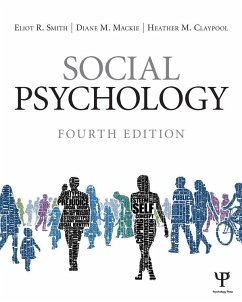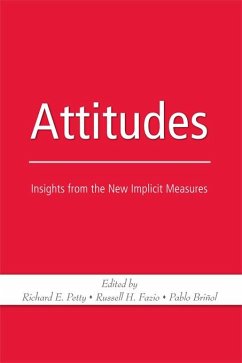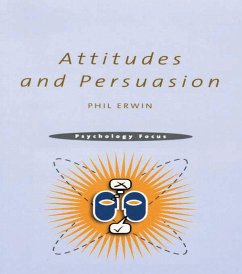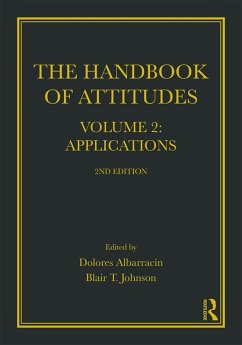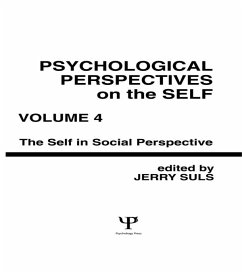
Contemporary Perspectives on the Psychology of Attitudes (eBook, PDF)
Versandkostenfrei!
Sofort per Download lieferbar
52,95 €
inkl. MwSt.
Weitere Ausgaben:

PAYBACK Punkte
26 °P sammeln!
What is an attitude? How do different research approaches characterise 'attitude' and its applications in social psychology?The Attitude concept has long formed an indispensable construct in social psychology. In this volume, internationally renowned contributors review contemporary developments in research and theory to capture the current metamorphosis of this central concept.This book draws together the latest developments in the field to provide a scholarly and accessible overview of the study of attitudes, examining the implications for its position as a paradigm of social psychological u...
What is an attitude? How do different research approaches characterise 'attitude' and its applications in social psychology?
The Attitude concept has long formed an indispensable construct in social psychology. In this volume, internationally renowned contributors review contemporary developments in research and theory to capture the current metamorphosis of this central concept.
This book draws together the latest developments in the field to provide a scholarly and accessible overview of the study of attitudes, examining the implications for its position as a paradigm of social psychological understanding. Dividing the subject into two main parts, this book first addresses the structural and behavioural properties of attitudes, including the affective-cognitive structure of attitudes, the nature of attitude ambivalence and intention-behaviour relations. The second section focuses on representational and transformational processes, such as meta-cognitive attitudinal processes, the role of implicit and explicit attitudinal processes, cultural influences and attitude change. In a third, concluding section, the editors draw together these contemporary perspectives and elaborate on their impact for future theorising and research into attitudes.
Empirically supported throughout, this collection represents a timely integration of the burgeoning range of approaches to attitude research. It will be of interest to social psychologists, sociologists, political scientists and researchers with an interest in attitudinal phenomena.
The Attitude concept has long formed an indispensable construct in social psychology. In this volume, internationally renowned contributors review contemporary developments in research and theory to capture the current metamorphosis of this central concept.
This book draws together the latest developments in the field to provide a scholarly and accessible overview of the study of attitudes, examining the implications for its position as a paradigm of social psychological understanding. Dividing the subject into two main parts, this book first addresses the structural and behavioural properties of attitudes, including the affective-cognitive structure of attitudes, the nature of attitude ambivalence and intention-behaviour relations. The second section focuses on representational and transformational processes, such as meta-cognitive attitudinal processes, the role of implicit and explicit attitudinal processes, cultural influences and attitude change. In a third, concluding section, the editors draw together these contemporary perspectives and elaborate on their impact for future theorising and research into attitudes.
Empirically supported throughout, this collection represents a timely integration of the burgeoning range of approaches to attitude research. It will be of interest to social psychologists, sociologists, political scientists and researchers with an interest in attitudinal phenomena.
Dieser Download kann aus rechtlichen Gründen nur mit Rechnungsadresse in A, B, BG, CY, CZ, D, DK, EW, E, FIN, F, GR, HR, H, IRL, I, LT, L, LR, M, NL, PL, P, R, S, SLO, SK ausgeliefert werden.





